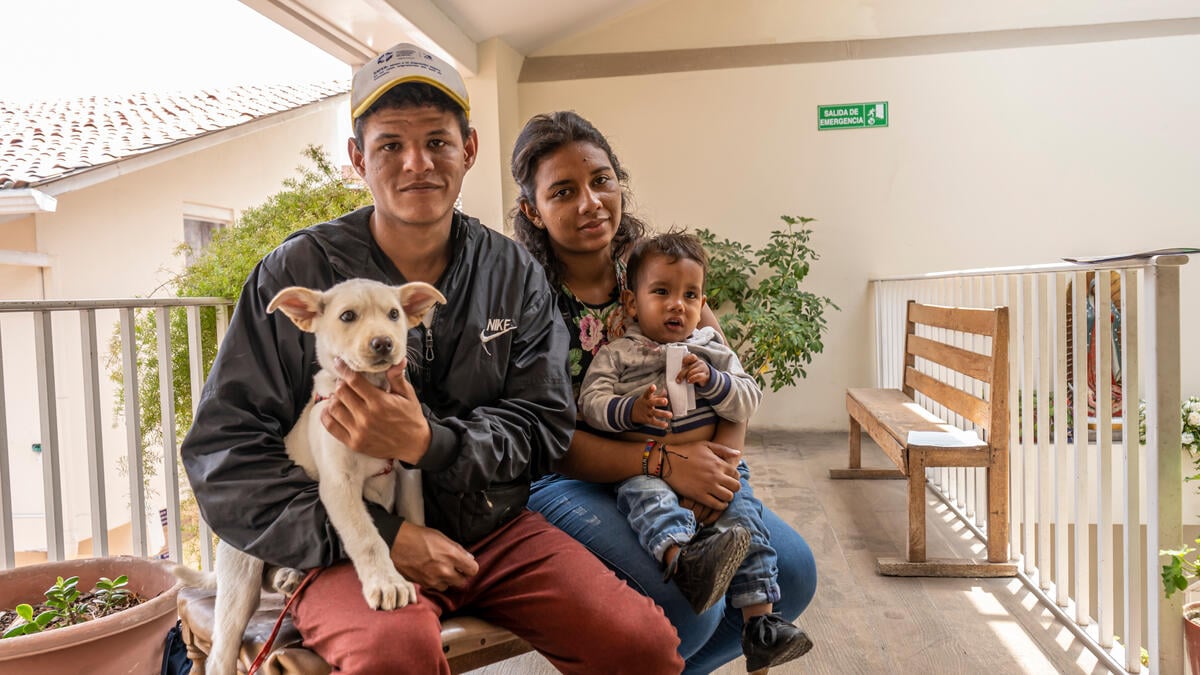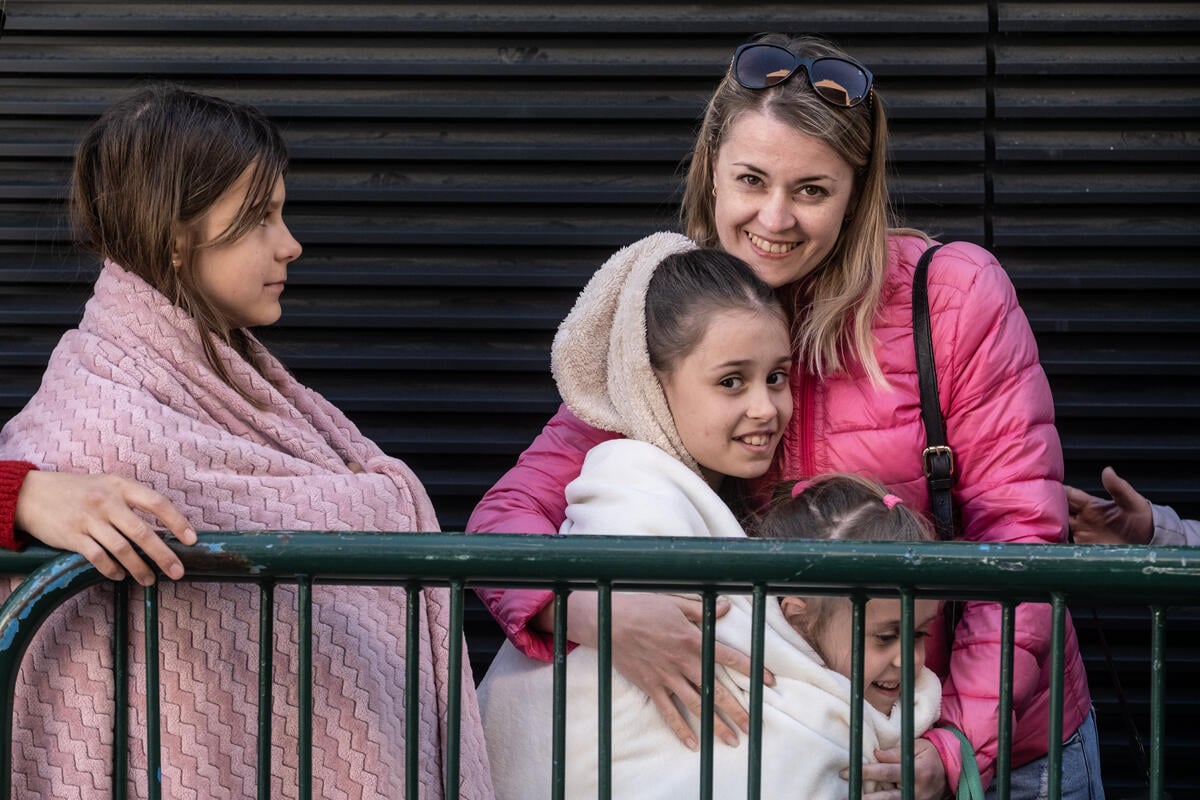High Commissioner praises refugee resettlement and integration in Australia and New Zealand
High Commissioner praises refugee resettlement and integration in Australia and New Zealand

AUCKLAND, New Zealand, February 27 (UNHCR) - The UN High Commissioner for Refugees, António Guterres, has praised the contributions of Australia and New Zealand to refugee protection after concluding visits to both countries during which he witnessed their settlement and integration programmes.
The High Commissioner thanked both governments for their leadership and contributions to UNHCR's global policy forums, their annual resettlement programmes and their generous financial contributions to the work of his Office.
In Hamilton, New Zealand, on Friday he watched as group of refugees - including a young woman from the Democratic Republic of the Congo - performed a traditional powhiri or greeting ceremony.
Having been separated for over a decade from her family, the woman and her brother were finally reunited with their mother and other family members through New Zealand's refugee resettlement quota programme and have now begun their new lives in Hamilton.
The ceremony, during which a family of refugees from Myanmar was also welcomed, was held at an indigenous Maori Marae meeting house, continuing a tradition of welcome by New Zealand's indigenous people to newly arrived refugees.
"This is one of the most genuine and moving reception ceremonies I have seen for refugees anywhere in the world," the High Commissioner remarked on the occasion.
The High Commissioner was also able to see some of the settlement services provided to refugees in New Zealand, and to discuss with ministers, government officials, NGOs and community groups the new government strategy to harmonize vital services such as education, training, health and housing, which is currently in development.
"This is a welcome development," Mr. Guterres said. "I congratulate the New Zealand government for taking steps toward this refugee resettlement strategy, and I look forward to seeing the outcomes when it is released in coming weeks."
The visit to New Zealand followed one to Australia where the High Commissioner discussed a range of issues affecting refugees and asylum-seekers with a broad range of stakeholders.
In Australia, the High Commissioner was able to discuss with Prime Minister Julia Gillard, ministers, government officials the deep, multi-faceted relationship UNHCR enjoys with Australia.
"This covers, among other things, Australia's role in the protection of refugees and asylum-seekers under the Refugee Convention; its generous resettlement programme; its engagement in refugee protection in the region, and its support for UNHCR's operations around the world," he said. "It is a strong relationship, and one which we value greatly."
Mr Guterres also raised UNHCR's concerns about Australia's mandatory detention of asylum seekers and the length of security assessments by Australian Security Intelligence Organisation (AISO), including the need for ''checks and balances'' in the security assessment process. In relation to off-shore processing of asylum claims, he advocated for Australia to grant access to their territory for people in need of protection, no matter how they arrive.
In discussions with civil society, the High Commissioner acknowledged "the essential and meaningful work" NGOs, community and faith-based groups, as well as central and local authorities, undertake toward helping new arrivals to integrate and settle into Australian society so that they can begin productive lives.
Following these talks, Mr. Guterres delivered a speech to the Lowy Institute, an international think tank based in Sydney, outlining some of UNHCR's global challenges and discussed a number of the policy challenges facing countries like Australia.
"I am aware that the maritime movement of people in dangerous boat journeys is a problem that preoccupies many governments in this region, including your own," the High Commissioner noted. "Compared to the refugee problem in other regions of the world, the debate is out of proportion in relation to the real dimension of the issue, as the numbers of people coming to Australia are small by global standards," he concluded.
In his first visit to Australia and New Zealand since 2009, the High Commissioner said he remained impressed with the vitality and diversity of both countries, and their ongoing commitment to refugee protection.
"We are very grateful to the people of these two countries for what they have given to the hundreds of thousands of refugees who they have given a new start to over the years."
By Ben Farrell in Auckland









